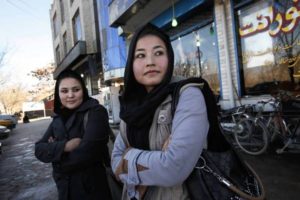Family, work and study keys to refugee settlement – research
Being with family and being engaged in education or work can lead to personal wellbeing and successful settlement pathways for young refugees in Australia, according to new research.
A new study of young Hazaras with refugee backgrounds in Australia also showed that spirituality played a role in successful outcomes for refugees.
The study, published recently in the Australian Journal of Psychology, used an online survey of 70 young Hazaras living in Australia.
 It said the Hazara people have historically been persecuted because they are an ethnic and religious minority group in Afghanistan and that while there has been research into the wellbeing of young refugees from other ethnic backgrounds, little research has focused on the wellbeing of young Hazaras.
It said the Hazara people have historically been persecuted because they are an ethnic and religious minority group in Afghanistan and that while there has been research into the wellbeing of young refugees from other ethnic backgrounds, little research has focused on the wellbeing of young Hazaras.
The study aimed to test whether the presence of immediate family in Australia, the process of being exposed to Australia culture and the absence of trauma symptoms were factors in personal wellbeing among refugees.
It also looked at the relationships between exposure to a new culture and resilience and wellbeing; and between exposure to a new culture, spirituality and wellbeing.
The study also tested whether, statistically, the absence of trauma symptoms was related to resilience in refugees.
The report’s lead author Carly Copolov said the findings identified possible pathways to wellbeing for young people from, refugee backgrounds in Australia.
“Findings suggest the young refugee people who are positively engaged with education and work in Australia and who report an absence of trauma symptoms are doing well,” said Ms Copolov, a researcher at Swinburne University, in Melbourne.
The research comes as the number of forcibly displaced persons worldwide has reached the highest levels since the end of World War II, with more 65 million people affected, including 21 million refugees, three million asylum seekers and more than 40 million internally displaced persons.
During displacement, these people typically experience extreme physical and mental health difficulties and once resettled in high income countries they experience ongoing challenges, the study said.
“Therefore, it is important to understand predictors of their wellbeing and ways that policy and practice can address these concerns during settlement,” Ms Copolov said.
“Refugee wellbeing has been a focus of concern and research in Australia and overseas as wellbeing is viewed as an important indicator of successful settlement for vulnerable populations,” she said.
The research drew upon work by the World Health Organisation (WHO) to identify wellbeing in different cultural contexts.
The WHO described wellbeing as a complex construct comprising various domains such as health, spiritual beliefs, personal relationships, physical safety, and security; and research has found that positive wellbeing during settlement increases the chances of participating in education, employment, developing community networks, and language proficiency.
“The majority of the young people we surveyed were living with their immediate family in Australia, they were generally well educated, had high levels of wellbeing and resilience, and appeared to be adapting well to life in Australia,” Ms Copolov said.
“The path analysis model provided new evidence regarding the impact of several psychological variables on personal wellbeing: acculturation, absence of trauma symptoms, resilience, and spirituality,” she said.
“One demographic variable, presence of immediate family in Australia, was also related to personal wellbeing, and this finding highlighted the role of family reunion policy in promoting wellbeing,” she said.
“For young people with refugee backgrounds, the presence of immediate family in Australia can often be the most important predictor of their wellbeing,” Ms Coplov said.
Laurie Nowell
AMES Australia Senior Journalist












